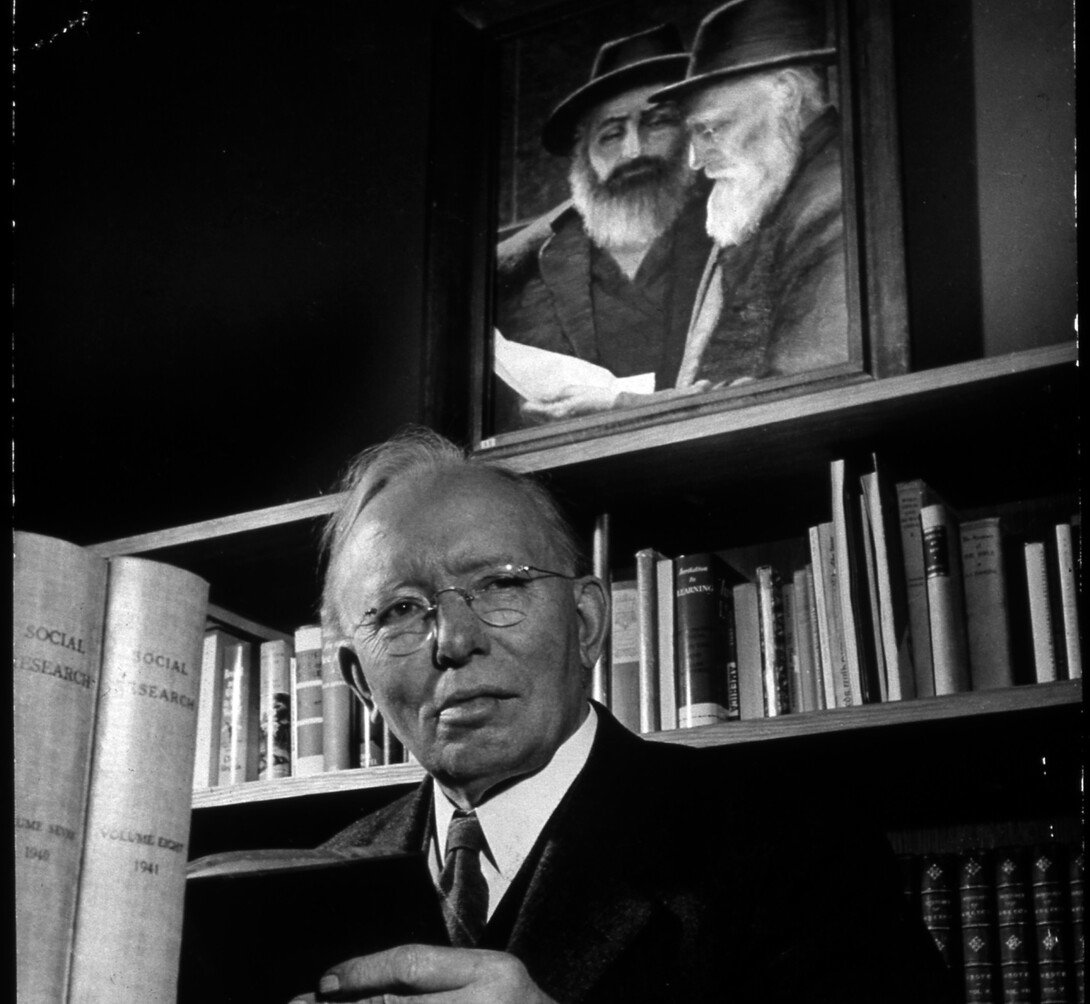
The Osher Lifelong Learning Institute at UNL will sponsor a symposium May 29 on the subject of Alvin Saunders Johnson, the son of a Danish immigrant farmer in northeast Nebraska who rose to co-found the New School for Social Research in New York City.
The symposium is scheduled for the day before Johnson is inducted into the Nebraska Hall of Fame. It is open to the public and will be from 8:30 a.m. to 2 p.m. at Southeast Community College, 301 S. 68th Place. Former Nebraska Gov. and U.S. Sen. Bob Kerrey, who was president of the New School from 2001 to 2010, will give the keynote address, discussing Johnson’s legacy at the New School and emphasizing his role in the University in Exile and antidiscrimination legislation.
A registration fee of $20 per person will include lunch. Preregistration is required by calling the OLLI office at 402-472-6265 or online at http://olli.unl.edu.
Academy and Emmy award winning sculptor Wesley Wofford will address the process he followed creating the bust of Johnson, which will be added to Nebraska’s Hall of Fame in the Nebraska State Capitol on May 30. Additional speakers include Don Walton, political writer for the Lincoln Journal Star, and Gene Budig, a former president of two major American universities and president of Major League Baseball’s American League.
Oliver Pollak, professor emeritus; Deanna Aguilar, OLLI director; Amy Miller, legal director, ACLU Nebraska; Dennis Mihelich, professor of history at Creighton University and chairman of the Hall of Fame Commission; and OLLI members Jerry Petr and Lee Rockwell, who nominated Johnson to the Hall of Fame, will round out the symposium’s presentations.
Johnson, born near Homer in 1874, always considered himself a bona fide pioneer and a Midwesterner. He graduated from the University of Nebraska in 1897 with a degree in the classics, then enlisted in the military and served during the Spanish-American War. After an honorable discharge, he earned a doctorate in economics from Columbia University.
In 1919, he helped co-found the New School and became its director in 1923. Johnson led the New School for 22 years as it became the model for adult education within the United States.
During the early 1930s, Johnson, who collaborated regularly with colleagues in Germany, became aware of the dangers presented by Hitler and the Nazi party. When Hitler began purging Jews and others from German universities, Johnson obtained funding to provide a haven in the United States for Jewish scholars whose careers and lives were threatened by the Nazis. He created the University in Exile, which sponsored more than 180 individuals and their families, providing them with visas and jobs.
In both his academic and private lives, Johnson demonstrated his concern for members of minority groups discriminated against or persecuted at home and abroad. In 1944, he co-chaired a commission that provided language for a New York statute that made it illegal to discriminate against Jews and African Americans. It was the nation’s first antidiscrimination in employment legislation and much of its language was later contained in the 1964 Civil Rights Act. Johnson died on June 7, 1971.







